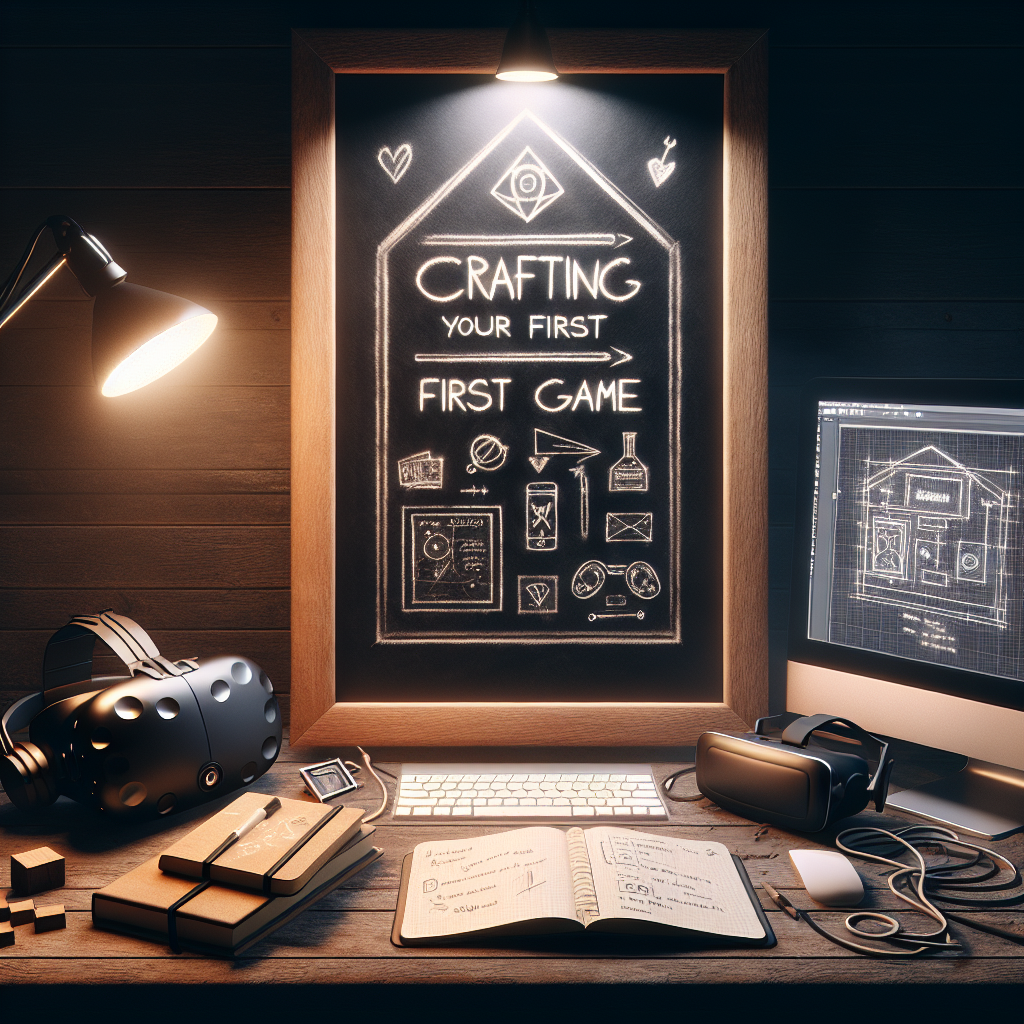Crafting Your First Game: A Beginner’s Guide to Game Design Tools
Creating a video game is an exciting venture filled with endless possibilities, but for beginners, it can also feel overwhelmingly complex. Fortunately, the world of game design has evolved, offering a plethora of tools and resources that simplify the process and make it accessible to anyone with a passion for gaming. This guide will help you navigate the landscape of game design tools to kickstart your journey into game development.
Understanding Game Design
Before diving into tools, it’s essential to grasp the basics of game design. Game design involves the creation of the content and rules of a game, focusing on aspects like gameplay, plot, characters, mechanics, and aesthetics. Understanding these fundamental concepts will help you make informed decisions when selecting the right tools for your project.
Essential Game Design Tools
-
Game Engines
Game engines are the backbone of any game development project, providing the software framework to build and run your game. Here are some of the most popular game engines for beginners:
-
Unity: A versatile and powerful engine, Unity supports 2D and 3D game development. Its extensive asset store and supportive community make it a popular choice for beginners. Unity uses C# for scripting, which opens doors to learning programming fundamentals.
-
Unreal Engine: Known for its stunning graphics capabilities, Unreal Engine is particularly suited for 3D games. It uses a visual scripting language called Blueprints, allowing beginners to create game logic without diving deep into coding. This engine is perfect for those interested in high-fidelity visuals.
- Godot: Ideal for beginners and indie developers, Godot is an open-source engine that supports both 2D and 3D games. Its scripting language, GDScript, is easy to learn, and its scene system offers a unique approach to game structure. Plus, being open-source means you can modify it to suit your needs.
-
-
Graphics and Art Tools
The visual aspect is crucial in game design, and there are various tools available to help you create stunning graphics:
-
Aseprite: A pixel art tool that is user-friendly and perfect for those looking to create 2D sprites and tiles. Aseprite allows you to animate your art, making it a popular choice for indie developers and retro-style games.
-
Adobe Photoshop: While not game-specific, Photoshop is an industry standard for creating high-quality graphics, textures, and UI elements. If you’re serious about game art and design, learning Photoshop can be beneficial.
- Inkscape: A free vector graphics editor that can be used to create scalable graphics for your game. It’s particularly useful for UI design and assets that need to maintain quality at various resolutions.
-
-
Sound Design Tools
Audio adds depth and immersion to games. Creating sound effects and music can seem daunting, but there are accessible tools available:
-
Audacity: A free, open-source audio editing software that allows you to record, edit, and manipulate sound files. It’s user-friendly and great for creating custom sounds for your game.
- FL Studio: A digital audio workstation that allows users to compose, arrange, and produce music. Beginners might find it a bit complex at first, but it offers a wealth of features for creating game soundtracks.
-
-
Project Management and Collaboration Tools
When creating a game, especially if you’re part of a team, project management tools become vital:
-
Trello: A visual project management tool that helps you organize tasks and track progress. You can create boards for different aspects of your game, assign tasks, and set deadlines.
- Slack: A communication platform designed for teams. It allows you to create channels for various topics, facilitating communication and collaboration in real time.
-
-
Tutorials and Learning Resources
Even the best tools won’t guarantee success without proper guidance. Fortunately, there are numerous resources available for beginners:
-
YouTube: A treasure trove of tutorials covering every imaginable aspect of game design. Channels like Brackeys, GDC, and Game Maker’s Toolkit offer invaluable insights and lessons.
-
Online Courses: Platforms like Udemy, Coursera, and Skillshare offer structured courses on game development. These can be particularly helpful for beginners looking to grasp the fundamentals quickly.
- Documentation and Forums: Most game engines have detailed documentation and forums where you can find answers to your questions, share ideas, and seek feedback from other developers.
-
Getting Started
Once you’ve chosen your tools, it’s time to start small. Instead of attempting to create a large-scale game, begin with a simple project, such as a basic platformer or a puzzle game. This approach allows you to learn each aspect of game development without feeling overwhelmed.
Steps to Follow:
- Conceptualize Your Game: Write down your ideas about what type of game you want to create, including mechanics, story, and overall aesthetic.
- Choose Your Tools: Based on your goals and the type of game you’re creating, select the most appropriate tools from the list above.
- Create a Prototype: Start building a simple version of your game. Focus on getting the core mechanics working before adding additional elements.
- Test and Iterate: Playtest your game frequently, gather feedback, and make improvements. Iteration is key in game development.
- Learn and Expand: As you grow more comfortable with your tools and processes, continue to learn new skills and experiment with more complex ideas.
Conclusion
Crafting your first game can be a rewarding and fulfilling experience. With the right tools and resources at your disposal, along with a willingness to learn and experiment, you’ll be well on your way to creating a game that reflects your vision. Embrace the journey, seek feedback from the community, and most importantly, have fun along the way. Happy game developing!




